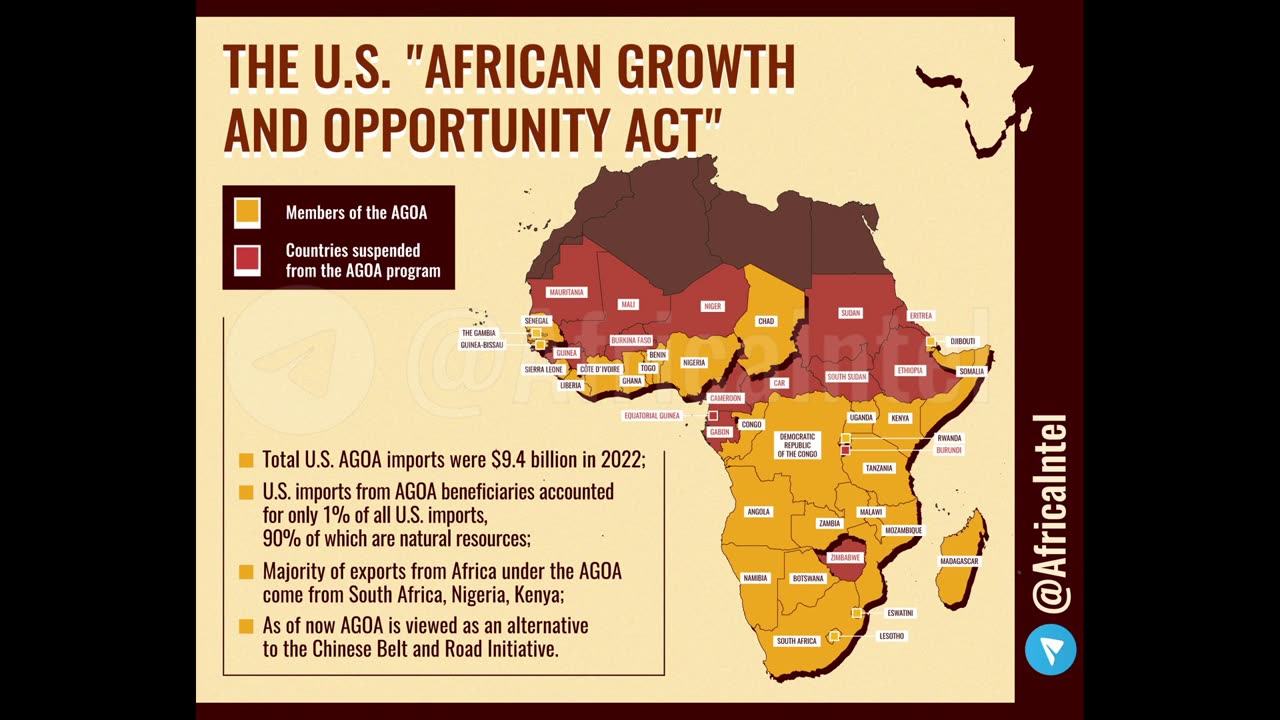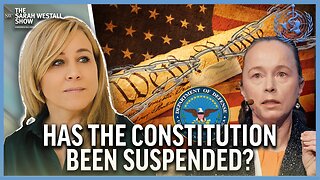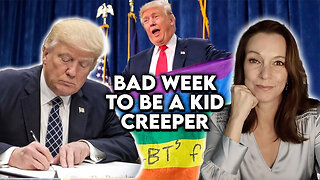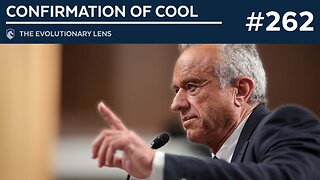Premium Only Content

The U.S. "African Growth and Opportunity Act" part 2
The U.S. "African Growth and Opportunity Act" and its current role in Washington's Africa strategy — part 2
🔻What is the current state of AGOA?
In official documents, the American government talks about the unprecedent growth of import from the sub-Saharan Africa throughout the more than 20 years of program.
Indeed, countries including Ghana, Kenya, Lesotho, Madagascar and Ethiopia have successfully used AGOA to boost exports to the U.S. and create jobs, especially in textiles. In fact, motor vehicles, textiles and apparel are one of the top import categories (overall $2.9 billion).
▪️But the real elephant in the room are natural resources, which are accounted of nearly 90% of US import through the AGOA. Meanwhile, the import from AGOA beneficiaries accounted for only 1% of all US imports.
▪️It is also noteworthy that majority of exports under the AGOA come from South Africa, Nigeria and Kenya. Other countries also benefit in some sorts, as described above, but the numbers are meager in comparison to these three. Of course, this "big three" are one of the if not the biggest economies on the continent, but the fact remains telling, especially against the backdrop of U.S. officials' statements.
▪️Scholars describe this program as a "neo-colonial scheme to further exploit African resources" and argue that despite promises of economic growth, the profits made from the scheme are "not for Africans", noting AGOA contains a clause requiring participating African countries not to oppose American foreign policy.
▪️Speaking of advancing their interests, most cases of expulsion are done to punish "disobedient" countries (like Burkina Faso, Niger, CAR, Uganda, Ethiopia or Zimbabwe) or to cover their actions (like with coup in Gabon).
And every time the US talks about human and workers rights violations, illegal coups, worsening humanitarian situation etc. against these countries. Yet Washington persistently forgets about many other countries with many issues, where the US see no problems (Chad, Madagascar, Mozambique Somalia, Senegal, DRC, etc.).
Moreover, despite the accusations and words "go away and return when you've made amends", the United States continue their projects in expelled countries and continue to import various goods (mostly natural resources) after the negotiations. Recently this happened, for example, with Niger and Gabon.
▪️And yet, despite benefits for the United States and not so big ones for Africa, African countries call for the extension of this program, while the US officials for its reformation and modernization. Why?
-
 57:31
57:31
Candace Show Podcast
14 hours agoBREAKING! Taylor Swift Turns Against Blake Lively & Ryan Reynolds | Candace Ep 141
241K177 -
 1:04:59
1:04:59
Sarah Westall
11 hours agoRFK Jr Report, Constitution Suspended, War Time Procedures in Place, WHO Exit, DOD w/ Sasha Latypova
81K34 -
 1:56:37
1:56:37
Melonie Mac
15 hours agoGo Boom Live Ep 35!
69.6K15 -
 1:01:13
1:01:13
LFA TV
18 hours agoPRESIDENT TRUMP SIGNS LAKEN RILEY ACT | BASED AMERICA 1.29.25 6pm
74.5K8 -
 1:43:07
1:43:07
2 MIKES LIVE
12 hours ago2 MIKES LIVE #172 News Breakdown Wednesday!
40.4K2 -
 1:26:16
1:26:16
The Big Mig™
13 hours agoJ6’r Ryan Samsel Free At Last The BOP & DOJ Exposed
39K4 -
 31:34
31:34
The Based Mother
13 hours ago $2.41 earnedEXECUTIVE ORDER MUTILATES GENDER IDEOLOGY! Trump’s pulling out all the stops.
26.8K10 -
 1:05:44
1:05:44
The Amber May Show
1 day ago $1.84 earnedSaving The Innocence | Rescuing Children From Rape Trafficking | Alan Smyth
26.7K4 -
 1:40:46
1:40:46
In The Litter Box w/ Jewels & Catturd
1 day agoIs the Jab Poisonous? | In the Litter Box w/ Jewels & Catturd – Ep. 730 – 1/29/2025
92.7K46 -
 2:06:16
2:06:16
Darkhorse Podcast
17 hours agoConfirmation of Cool: The 262nd Evolutionary Lens with Bret Weinstein and Heather Heying
101K63